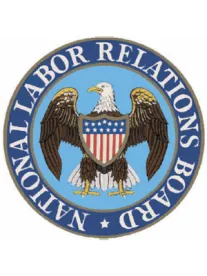NLRB Acting Chair Philip Miscimarra has given the clearest indication to date of what steps a new Republican majority is likely to take to reverse key elements of the Labor Board’s hallmark actions of the Obama administration once President Trump nominates candidates for the Board’s two open seats and the Senate confirms. In each of these cases, Miscimarra highlighted his earlier opposition to the majority’s changes in long standing precedents and practices.
The Acting Chair’s Position On the Board’s 2014 Amended Election Rules – The Emphasis On “Speed Above All Else” is Inconsistent With the Law
In a strongly worded dissent in European Imports, Inc., 365 NLRB No. 41 (February 23, 2017), the Acting Chair took issue the majority’s decision to deny an Employer’s Emergency Request for Review, that sought to postpone and reschedule a representation election scheduled to take place only three days after a significant number of the employees who would be eligible to vote approximately 25%, learned that they were included in the bargaining unit, and would be affected by the outcome of the vote.
In its Emergency Request, the employer urged the Board to postpone the election by a week, to endure that the employees would know whether they would be eligible to vote and if they were, to allow them to get the facts and make an informed decision when they voted. It also argued that holding the election so soon after the issuance of the Direction of Election “would deprive many employees of sufficient notice that they would be voting in election that would dictate whether they would have union representation.”
Disagreeing with the decision of Members Mark Pearce and Lauren McFerran to deny the employer’s Emergency Request without comment, Miscimarra took issue not only with the denial of this Request, but more broadly, with the Board’s 2014 Amended Election Rule (the “Rule”) and its “preoccupation with speed between petition-filing and the election,” the Rule’s “single-minded standard” calling for “every election (to be) scheduled for ‘the earliest date practicable . . .”
Miscimarra reiterated his position, as expressed in his dissent to the Board’s adoption of the amended Election Rule in 2014, that such an emphasis on speed above all else is inconsistent with the Board’s duty under the National Labor Relations Act “to assure to employees the fullest freedom in exercising the rights guaranteed” by the Act.
The Acting Chair again called for the Board to establish “concrete parameters” for the scheduling of elections that would ensure “reasonable minimum and maximum times between the filing of a representation petition and the holding of an election.”
In addition to addressing issues of timing, Miscimarra also took issue with the fact that during the representation hearing preceding the Direction of Election. The Board’s Regional Director had refused to permit the employer to present evidence and develop a record as to why it was being prejudiced in this case by the 2014 Amended Election Rule. The Regional Director ruled that because earlier judicial challenges to the facial validity of the Election Rule had been dismissed, the employer could not litigate the actual prejudice the Rule caused in this case.
Miscimarra made clear that in his view, the fact that earlier facial challenges to the Amended Election Rule had been dismissed, questions as to the validity of the Rule, when applied to specific facts remains open and that it is a “clear error and an abuse of discretion” to deny an employer the opportunity to litigate such issues when they arise.
The Acting Chair’s Position On the Obama Board’s Handbook and E-Mail Decisions
In another dissent in Verizon Wireless Inc., 365 NLRB No. 38 (February 24, 2017) Miscimarra reiterated his strong dispute with the way in which the Obama Board has analyzed and decided cases challenging employee handbooks and policies, writing that Board’s current standard for deciding such cases “defies common sense.”
Under the Board’s 2004 Lutheran Heritage standard, the Board will find a handbook provision or policy to violate the Act and unlawfully interfere with employees’ rights to engage in concerted, protected activity if which in part rendered work rules and handbook provisions unlawful if employees “would reasonably construe” them to prohibit protected activities under Section 7 of the Act.
The Acting Chair reiterated his view, as explained in his lengthy 2016, dissent in William Beaumont Hospital, 363 NLRB No. 162, that the Board’s current test is unworkable, and fails to adequately recognize employer’s legitimate needs of employers. Calling on the Board and the Courts to overturn and reject the Lutheran Heritage standard, Miscimarra urged the adoption in its place of a new balancing test that would not only focus on employees’ rights under the Act, but that would also take into account employers’ legitimate justifications for a particular policy or rule, such as attempting to avoid potentially fatal accidents, reduce the risk of workplace violence or prevent unlawful harassment.
Miscimarra also took direct aim in his dissent at the He also wrote that he believes the Board should overturn its Purple Communication decision allowing employee virtually unfettered use of employer email systems and return to the former standard in Register Guard, which recognized that such systems are employer property and should be recognized as such. The dissent described the standard under Purple Communications as “incorrect and unworkable,” and called for a standard that would once again recognize “the right of employers to control the uses of their own property, including their email systems, provided they do not discriminate against NLRA-protected communications by distinguishing between permitted and prohibited uses along Section 7 lines.”
What This Means for Employers
As we noted when the President appointed then Member Miscimarra to serve as Acting Chair of the Board, meaningful change in how the Board interprets and applies the Act will not come until the two vacant seats are filled and a new majority is able to act. Additionally, current General Counsel Richard F. Griffin, Jr.’s term runs through August 4, 2017.
We expect change to come as ULP issues get before the Board. It is to be expected that any new Members appointed by the President will almost certainly share Acting Chair Miscimarra’s views on such issues as use of employer email systems and the review and enforcement of workplace rules, handbooks and the like. A new balancing test such as that proposed in the Beaumont Hospital dissent is quite foreseeable.
Concerning the Amended Election Rule, things are a bit trickier. The Rule itself was the result of formal rule making, with public comment and input after the Board published its proposed Rule in the Federal Register. Major changes in the Rule itself would require a new Board to follow the same processes, which are quite lengthy. However, there is certainly room, as Miscimarra’s dissent in European Imports demonstrates, for the Board to make changes in how it administers and processes cases even under this Rule, before any change to the Rule itself becomes effective. The Acting Chair’s comments concerning the right of employers and other parties to due process, including the right to develop a complete factual record on disputed, material issues is something that can be changed through the administration and application of the Rule even without formal change. So to, it would not be surprising for a new General Counsel to give guidance to the Board’s Regional Offices calling for them to apply their discretion to avoid circumstances like those that triggered the Emergency Request in European Imports to make sure that there are no more “three day elections.”
Periods such as this, where there is transition in interpretation and enforcement, are challenging but in reality they have been a part of the history of the enforcement and application of the Act for more than 80 years. Students of the Board often speak of a pendulum and the need for those with business before the Board to try to anticipate its swings. Careful consideration of not just what the “law” is now, but also what it is likely to be going forward will now once again be the watchword.




 />i
/>i

